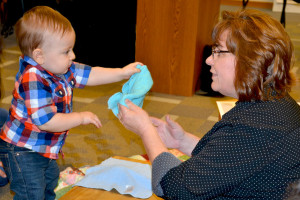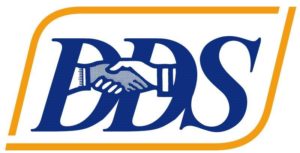The Early Start Program is California’s response to federal legislation ensuring that early intervention services to infants and toddlers with disabilities and their families are provided in a coordinated, family-centered manner. The Early Start Program is a multi-agency effort managed jointly by the Department of Developmental Services and the California Department of Education that encourages partnerships between families and professionals, family support, and coordination of services. The statewide program is available throughout California, and can be accessed through Regional Centers for developmental disabilities, County Offices of Education or local school districts, health or social service agencies, and family resource centers/networks in your community.
Eligible children include those infants or toddlers (birth through 36 months) who:
- have a significant delay in at least one area of development,
- have an established risk condition with a known probability of causing a disability or delay, or
- have severe vision, hearing, or orthopedic (“solely low incidence”) conditions,
- are at “high risk” of experiencing developmental delays or disabilities due to a combination of biomedical risk factors.
Change in Early Start Eligibility 07-27-2022
Early intervention services under the Early Start Program are provided by public and private programs that focus on the health and well-being of young children ages birth-3 years old. A child’s development is assessed in each of these five areas:
- ability to move, see, and hear (physical)
- ability to think and learn (cognitive)
- ability to understand, talk, express self (language and speech)
- ability to relate to others (social and emotional)
- ability to eat, dress and to care for or help self (adaptive)
Early intervention services and support are planned and delivered through a partnership between families and professionals, with NBRC Early Intervention Service Coordinators coordinating community services based on the child’s needs and the preferences of each family utilizing an Individual Family Service Plan.
Early Start services are designed to meet the needs of each infant/toddler and the needs of the family and are provided in “natural environments”, i.e., home and community settings in which children without disabilities participate. Evaluations, assessments, and most services are provided at no cost to the family although private insurance, when available, must be used for medical services/therapies.
The children served by Early Start move to a different system at age 3: to special education preschool programs and Lanterman regional center services if eligible, or they graduate out of specialized services. The Early Start and special education systems work together to ensure a smooth transition for the child and family.
An important part of Early Start is the network of family resource centers/networks (FRC/Ns) which support the emotional and informational needs of families by providing parent-to-parent contact, information about disabilities and early intervention, and assistance in accessing services. Phone contact, home or hospital visits, and support groups are all ways in which families might connect with experienced, knowledgeable parent “peers” through their local Family Resource Center/N.
Early Intervention-Brochure-English
Early Intervention-Brochure-Spanish
Early Start Information Packet
Department of Developmental Services Early Start Information Packet (Available in a variety of languages)
If you believe your child may qualify for Early Intervention, please contact NBRC using the following phone numbers or completing the form below.
- Napa/Solano Counties (800) 646-3268
- Sonoma County (707) 755-5113
Napa/Solano Early Start Referral Form
For more information, view the short movie about early intervention at NBRC’s YouTube Channel here.






